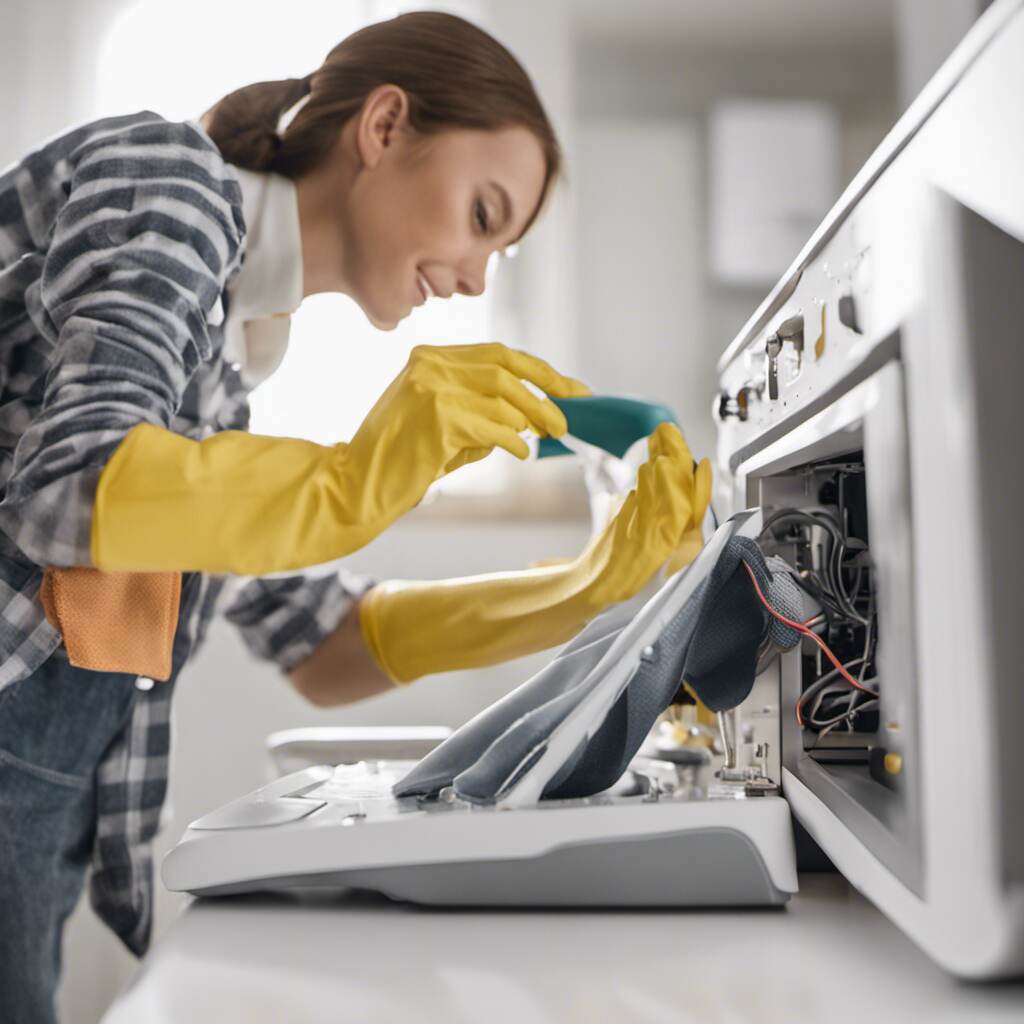
Indulging in the world of wines and spirits is a delightful experience, but maintaining the pristine condition of your cherished wine and bar accessories is equally important. Whether you’re a seasoned wine enthusiast or a casual sipper, the cleanliness of your tools plays a crucial role in preserving the flavors and aromas of your favorite beverages. In this guide, we’ll explore simple yet effective techniques to ensure that your corkscrews, glassware, and other bar essentials remain in impeccable condition, elevating your drinking experience to new heights.
As we delve into the art of cleaning, we’ll uncover the common pitfalls that can compromise the quality of your wine and bar accessories. From the subtle tannins in wine glasses to the intricate mechanics of corkscrews, each element demands a tailored approach to maintain its functionality and elegance. Our step-by-step instructions will empower you to navigate the cleaning process effortlessly, helping you strike the perfect balance between preserving the integrity of your tools and enjoying the rich nuances of your favorite libations.
Whether you’re a host preparing for a soirée or an individual seeking to enhance your personal drinking rituals, this guide is your passport to a world where cleanliness is not just a routine but a celebration of the craftsmanship behind your wine and bar accessories. So, let’s embark on a journey to revive the sparkle of crystal-clear glassware and uncork the secrets to keeping your bar tools pristine – because every pour deserves a clean canvas.
How to Clean Wine Glasses
- Handwashing is Key: While some wine glasses may claim to be dishwasher-safe, it’s best to handwash them to prevent breakage and preserve their delicate features. Use a soft sponge or cloth to avoid scratching the glass.
- Warm Water and Mild Detergent: Create a gentle cleaning solution by mixing warm water with a mild dish detergent. Gently scrub the glass inside and out, paying attention to the rim and stem. Rinse thoroughly to ensure no soap residue remains.
- Avoid Abrasive Cleaners: Steer clear of abrasive cleaners and scouring pads as they can damage the glass surface. Stick to soft materials to maintain the pristine clarity of your wine glasses.
- Remove Hard Water Stains: To tackle hard water stains, soak the glasses in a mixture of equal parts water and white vinegar. Rinse well and dry with a lint-free cloth to prevent water spots.
- Polishing for Perfection: Polish your wine glasses with a microfiber cloth to eliminate any streaks or fingerprints. This step adds that extra sparkle, making your glasses ready for the next pour.
How to Clean Corkscrews and Openers
- Regular Cleaning Routine: After each use, rinse your corkscrew or wine opener under warm water to remove any residue. Use a small brush or toothpick to dislodge any stubborn cork particles.
- Sanitize for Safety: To ensure your corkscrew remains hygienic, sanitize it regularly. Soak it in a solution of water and a mild disinfectant or use sanitizing wipes. Allow it to air-dry completely before the next use.
- Lubricate the Mechanism: Keep your corkscrew’s mechanism smooth and functional by applying a drop of food-grade mineral oil. This prevents rust and ensures effortless cork removal.
- Check for Wear and Tear: Periodically inspect your corkscrew for any signs of wear or damage. If you notice any issues, consider replacing them to avoid mishaps during your next celebration.
How to Clean Decanters
- Immediate Rinse: After pouring out the last drop of that exquisite red, don’t delay – give your decanter an immediate rinse. This prevents wine residue from drying and becoming challenging to remove.
- Use Decanter Cleaning Balls: Invest in specialized decanter cleaning balls or beads. Add them to the decanter with warm water and gently swirl to dislodge any sediment or stains. Rinse thoroughly afterward.
- Avoid Dishwashing Machines: Most decanters are not dishwasher-safe due to their delicate shapes. Handwashing with a long brush designed for decanters is the safest and most effective way to clean them.
- Remove Stubborn Stains: For stubborn stains, fill the decanter with a mixture of warm water and baking soda. Let it sit for a few hours or overnight, then scrub with a soft brush. Rinse thoroughly.
Cleaning Bar Tools
- Handwash Shakers and Strainers: The intricate design of shakers and strainers may not fare well in the dishwasher. Handwash them with warm, soapy water, paying attention to any hidden nooks where residue might linger.
- Deep Clean for Straws: If your bar setup includes reusable straws, invest in a straw cleaning brush. Regularly clean them by running the brush through the straw with warm, soapy water.
- Keep Ice Buckets Fresh: Empty and clean your ice bucket after each use. A mixture of water and a small amount of bleach can be used for occasional deep cleaning. Rinse thoroughly and let it air dry.
- Wipe Down Surfaces: Regularly wipe down the surfaces of your bar area with a mixture of water and a mild disinfectant. This helps maintain a clean and inviting space for mixing and enjoying drinks.
Tips for Storage and Display
- Dust and Polish Display Shelves: If you have a dedicated area to display your wine and bar accessories, dust the shelves regularly. Polish the surfaces with a suitable wood cleaner to keep everything looking as good as new.
- Rotate Wine Bottles: If you store wine for an extended period, rotate the bottles periodically to prevent sediment settling. This ensures that each bottle maintains its optimal taste when opened.
Conclusion
By incorporating these simple yet effective cleaning practices into your routine, you not only elevate the drinking experience but also ensure the longevity of your cherished wine and bar accessories. So, toast to hygiene and revel in the knowledge that your glasses, corkscrews, and decanters are as clean and inviting as the drinks they hold. Cheers!


